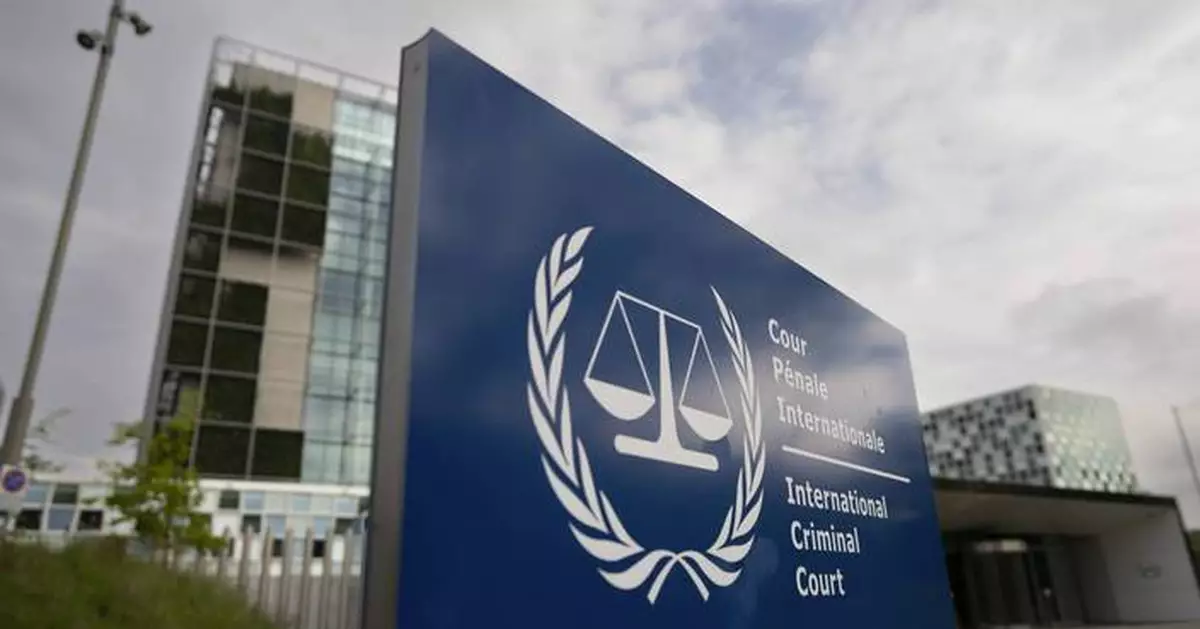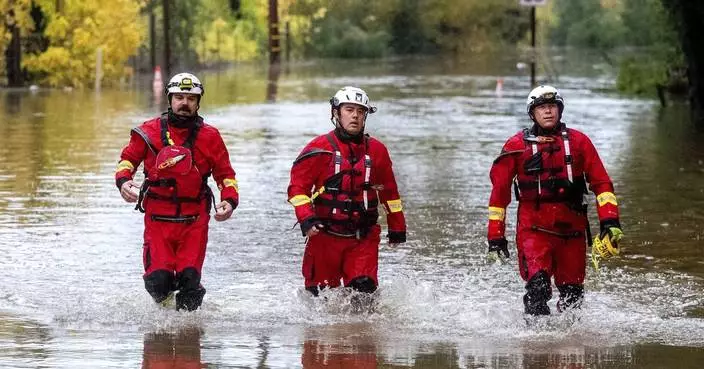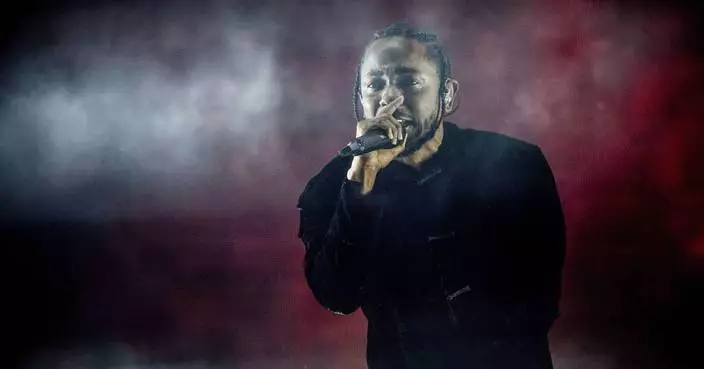UNITED NATIONS (AP) — A key U.N. General Assembly committee adopted a resolution late Friday paving the way for negotiations on a first-ever treaty on preventing and punishing crimes against humanity after Russia dropped amendments that would have derailed the effort.
The resolution was approved by consensus by the assembly’s legal committee, which includes all 193-member U.N. nations, after tense last-minute negotiations between its supporters and Russia that dragged through the day.
There was loud applause when the chairman of the committee gaveled the resolution’s approval. It is virtually certain to be adopted when the General Assembly puts it to a final vote on Dec. 4.
“Today’s agreement to start up negotiations on a much-needed international treaty is an historic achievement that was a long time coming,” Richard Dicker, Human Rights Watch’s senior legal adviser for advocacy, told The Associated Press.
“It sends a crucial message that impunity for the kinds of crimes inflicted on civilians in Ethiopia, Sudan, Ukraine, southern Israel, Gaza and Myanmar will not go unheeded,” he said.
The resolution calls for a time-bound process with preparatory sessions in 2026 and 2027, and three-week negotiating sessions in 2028 and 2029 to finalize a treaty on crimes against humanity.
Dicker said Russia’s proposed amendments left in question whether treaty negotiations would have been completed.
Russia’s deputy U.N. ambassador Maria Zabolotskaya said Russia withdrew the amendments “in a spirit of compromise." But she said Russia “dissociates itself from consensus.”
“This, of course, does not mean that we are not ready to work on this crucial convention,” Zabolotskaya told the committee.
The International Criminal Court was established to punish major perpetrators of war crimes, crimes against humanity and genocide and it has 124 countries that are parties to it. The ICC says crimes against humanity are committed as part of a large-scale attack on civilians and it lists 15 forms including murder, rape, imprisonment, enforced disappearances, sexual slavery, torture and deportation.
But the ICC does not have jurisdiction over nearly 70 other countries.
There are global treaties that cover war crimes, genocide and torture — but there has been no specific treaty addressing crimes against humanity. And according to sponsors of the resolution, led by Mexico and Gambia and backed by 96 other countries, a new treaty will fill the gap.
Kelly Adams, legal advisor at the Global Justice Center, also called the resolution “a historic breakthrough” after many delays.
Pointing to “the proliferation of crimes against humanity around the world,” she expressed hope that a treaty will be “strong, progressive and survivor-centric.”
Amnesty International’s Secretary General Agnes Callamard expressed disappointment that the timeline had been extended until 2029, but said, “What’s important is that this process will deliver a viable convention.”
“It is long overdue and all the more welcome at a time when too many states are intent on wrecking international law and universal standards,” she said. “It is a clear sign that states are ready to reinforce the international justice framework and clamp down on safe havens from investigation and prosecution for perpetrators of these heinous crimes.”
After the resolution’s adoption, Gambia’s Counselor Amadou Jaiteh, who had introduced it hours earlier, called its approval “a once-in-a-lifetime opportunity to make a difference,” to hope for a world without crimes against humanity, “and a world where voices of victims are heard louder than their perpetrators.”
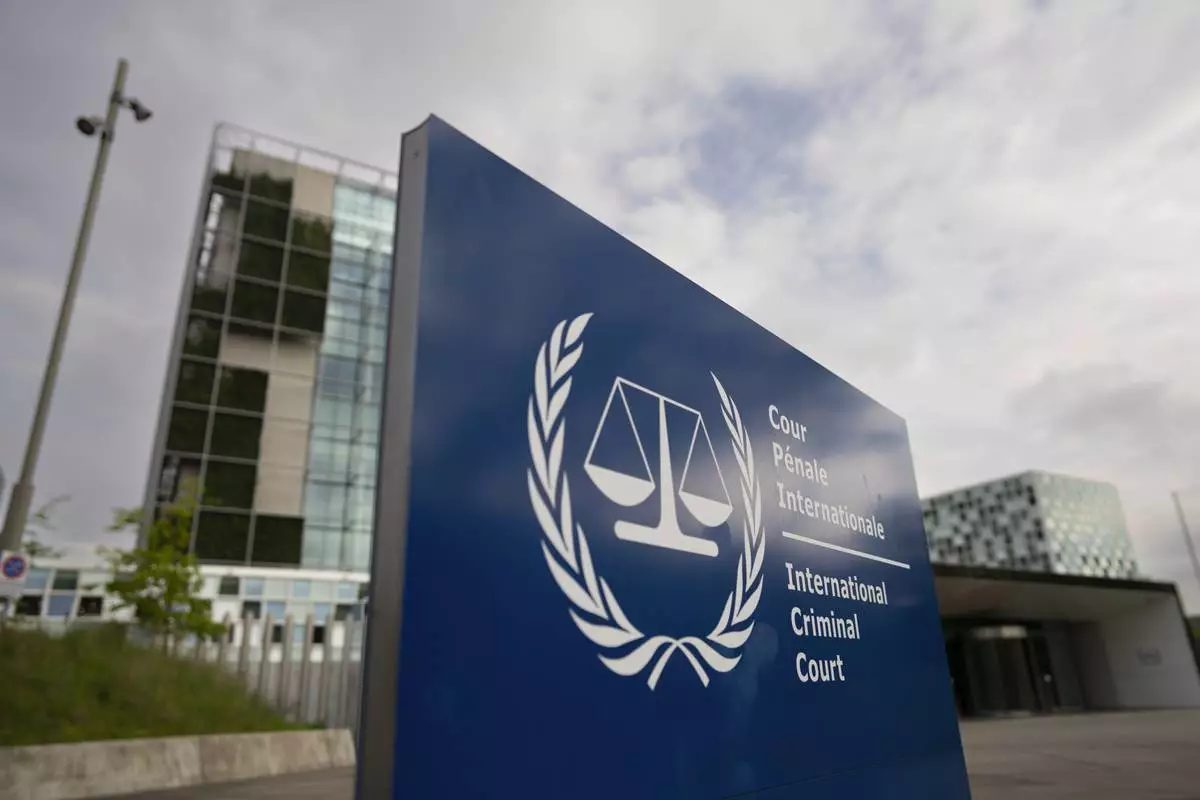
FILE - Exterior view of the International Criminal Court, or ICC, in The Hague, Netherlands, on April 30, 2024. (AP Photo/Peter Dejong, File)
BAKU, Azerbaijan (AP) — The United Nations' annual climate talks pushed into overtime Saturday under a cloud of anger and disappointment as negotiators were well short of a deal on money for developing nations to curb and adapt to climate change.
A draft of the final agreement Friday pledged $250 billion annually by 2035, more than double the previous goal of $100 billion set 15 years ago but far short of the annual $1 trillion-plus that experts say is needed. Through the early hours of Saturday morning, The Associated Press saw lead negotiators from the European Union, the United States and other nations going through the empty halls from meeting to meeting as delegates tried to hash out a new version of the deal.
“We're still working hard,” U.S. climate envoy John Podesta told the AP past 4 a.m. local time.
The climate talks, called COP29, in Baku, Azerbaijan, were scheduled to end Friday. Workers have already begun dismantling the venue for the talks.
Wealthy nations are obligated to help vulnerable countries under an agreement reached at these talks in Paris in 2015. Developing nations are seeking $1.3 trillion to help adapt to droughts, floods, rising seas and extreme heat, pay for losses and damages caused by extreme weather, and transition their energy systems away from planet-warming fossil fuels and toward clean energy.
Representatives of some of the nations that are obliged to contribute the cash said the $250 billion climate finance figure is realistic and reflects their limits at a time when their own economies are stretched.
The amount in any deal reached at COP negotiations — often considered a “core” — will then be mobilized or leveraged for greater climate spending. But much of that means loans for countries drowning in debt.
But that meant little to vulnerable nations, many already battered by extreme weather made worse largely by emissions from the burning of fossil fuels they've had little to do with. Most of those emissions have come from the developed world since the Industrial Revolution.
“Developed countries must commit trillions, not empty promises," said Harjeet Singh, Director for the Fossil Fuel Non-Proliferation Treaty Initiative. "Anything less makes them squarely responsible for the failure of these talks and the betrayal of billions across the globe.”
Nikki Reisch, director of the climate and energy program at the Center for International Environmental Law, said the offering was unacceptable not just because the money is low, but because “it’s really designed to escape and evade the legal obligation that developed countries have” to pay for the climate change they have largely caused.
Several dozen activists marched in silence outside the halls where delegates meet late Friday, raising and crossing their arms in front of themselves to indicate rejection of the draft text.
With bleary eyes, seated around cold pizza, a group of youth activists chatted to keep each other awake in one of the main halls of the venue.
“All of us are kind of in mourning in a way,” said Jessica Dunne, with the Alliance of Non-Governmental Radical Youth. This is her fourth COP, and along with the other activists present, she’s disappointed and deeply worried about the current deal on offer. But the group said being in community eases the painful emotions that come with a process Dunne called an “abject failure.”
“In these halls tonight, as we’re sitting here and we’re talking and we’re dancing and crying and laughing, it kind of gives you hope that there will be another day that we’re going to fight for,” she said.
“I’m really tired,” said Erica Njuguna, a climate activist from Kenya. “But we are holding the line, making sure that COP delivers for people on the front lines of the climate crisis. So far it hasn’t.”
Associated Press journalist Joshua A. Bickel contributed to this report.
The Associated Press’ climate and environmental coverage receives financial support from multiple private foundations. AP is solely responsible for all content. Find AP’s standards for working with philanthropies, a list of supporters and funded coverage areas at AP.org.
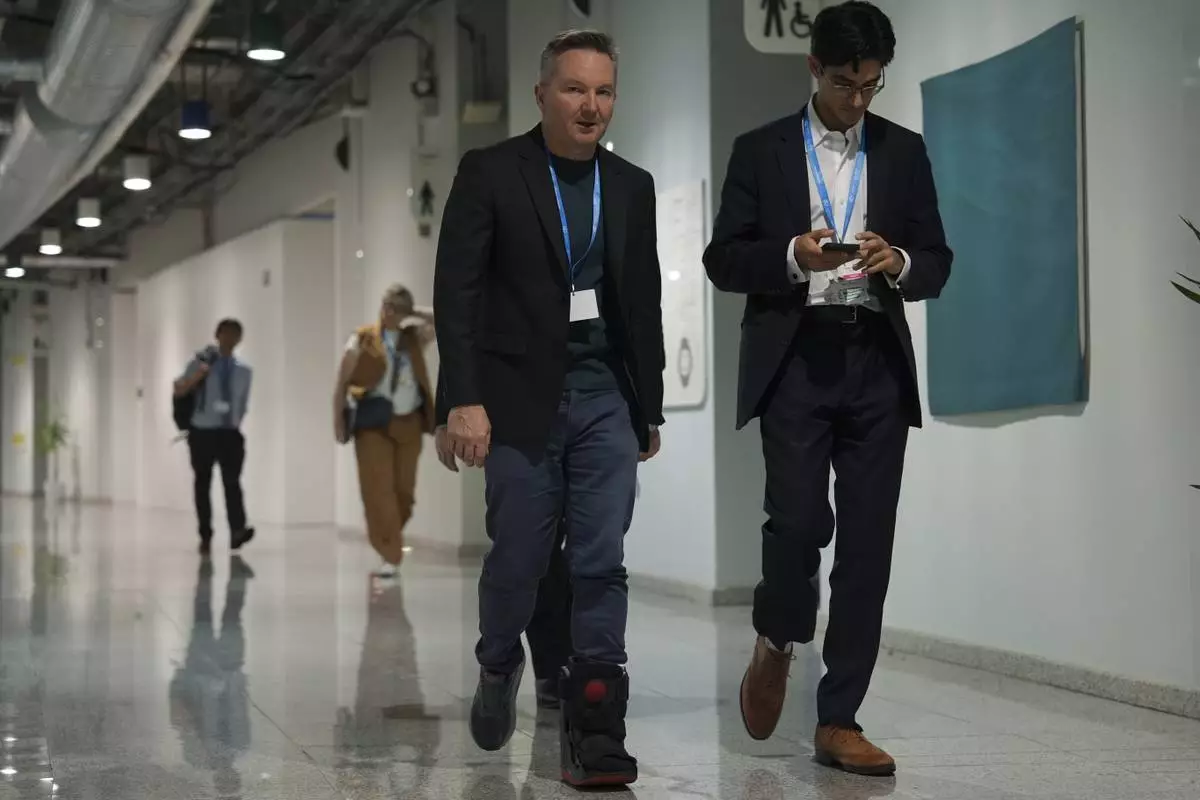
Australia Climate Minister Chris Bowen, center, walks through a hallway at the COP29 U.N. Climate Summit in the early hours of Saturday, Nov. 23, 2024, in Baku, Azerbaijan. (AP Photo/Joshua A. Bickel)
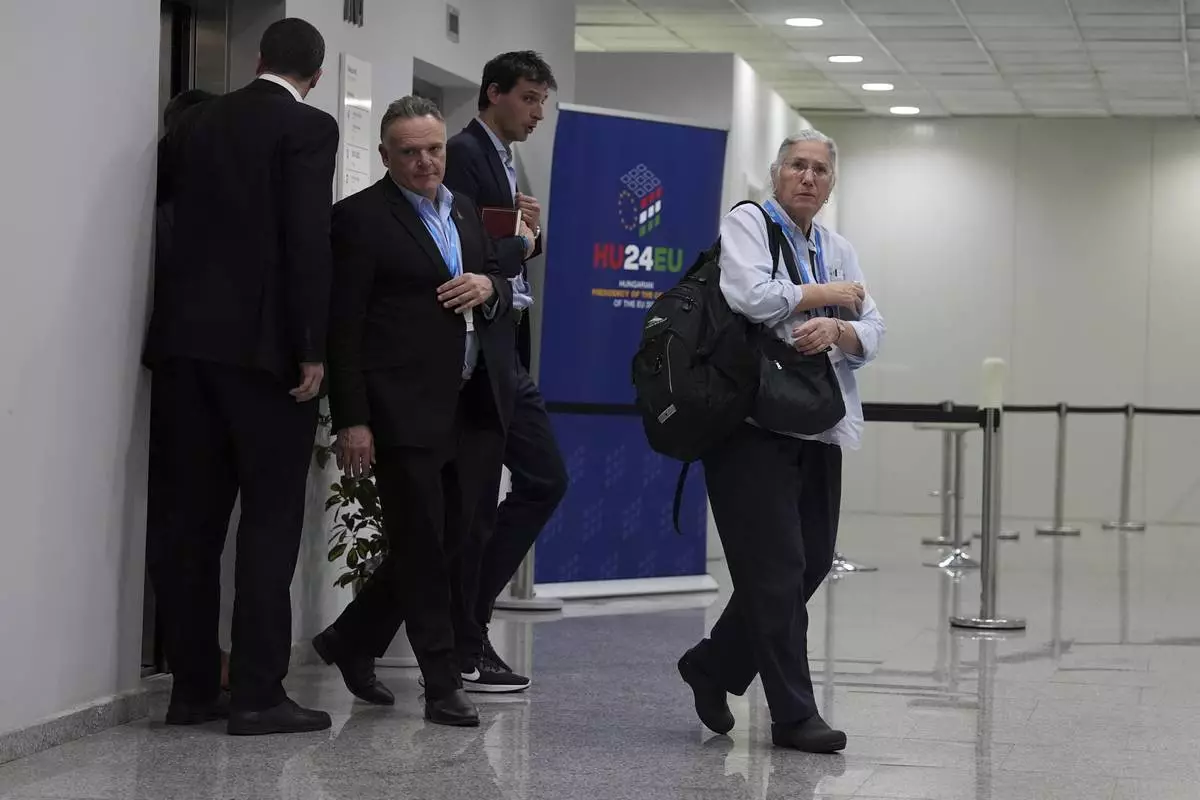
U.S. Deputy Climate Envoy Sue Biniaz, right, and Wopke Hoekstra, EU climate commissioner, second from right, walk out of an elevator during the COP29 U.N. Climate Summit in the early hours of Saturday, Nov. 23, 2024, in Baku, Azerbaijan. (AP Photo/Joshua A. Bickel)
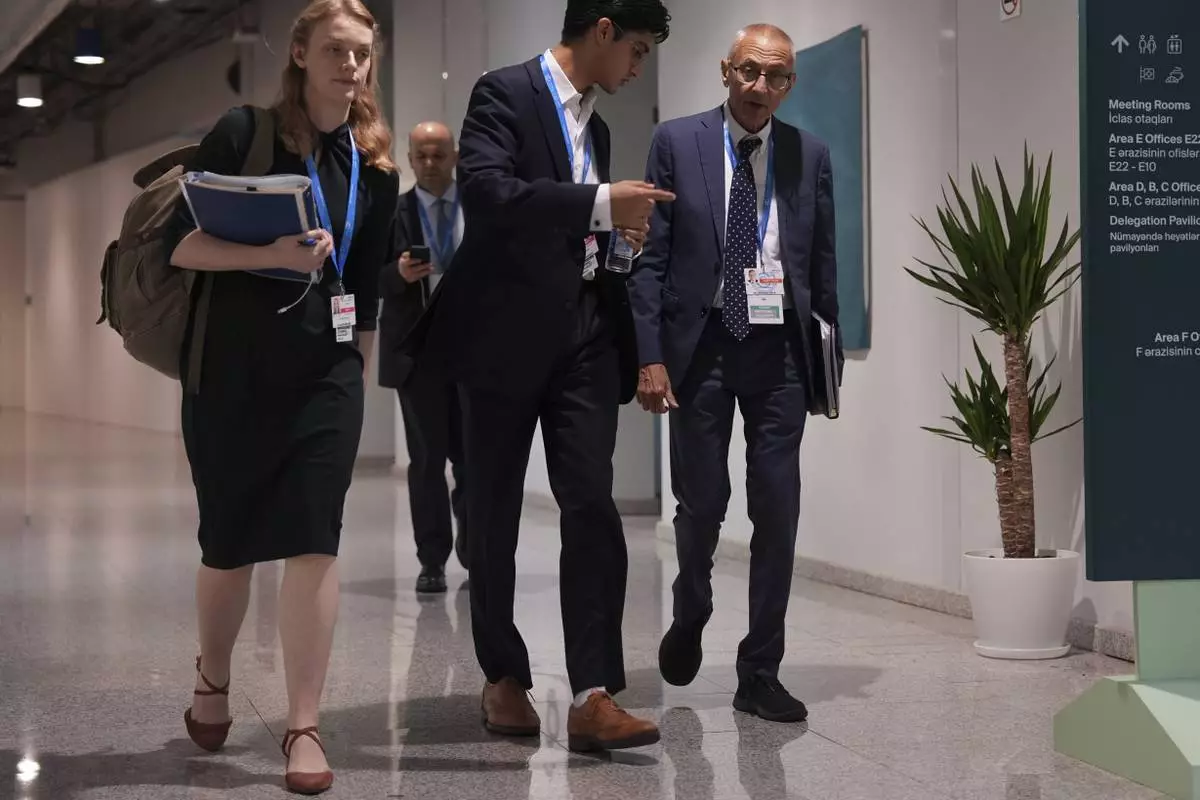
John Podesta, U.S. climate envoy, right, walks through the hallways of the COP29 U.N. Climate Summit in the early hours of Saturday, Nov. 23, 2024, in Baku, Azerbaijan. (AP Photo/Joshua A. Bickel)
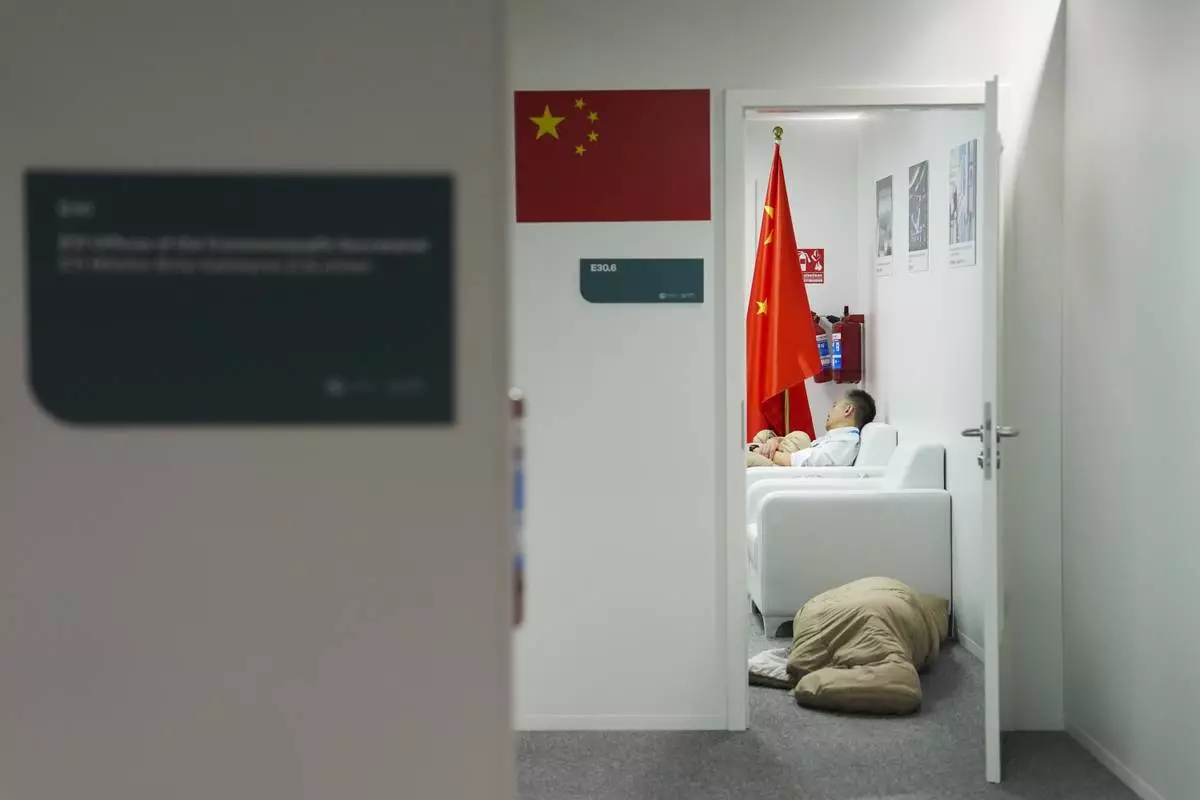
People sleep in the Chinese delegation offices at the COP29 U.N. Climate Summit in the early hours of Saturday, Nov. 23, 2024, in Baku, Azerbaijan. (AP Photo/Joshua A. Bickel)
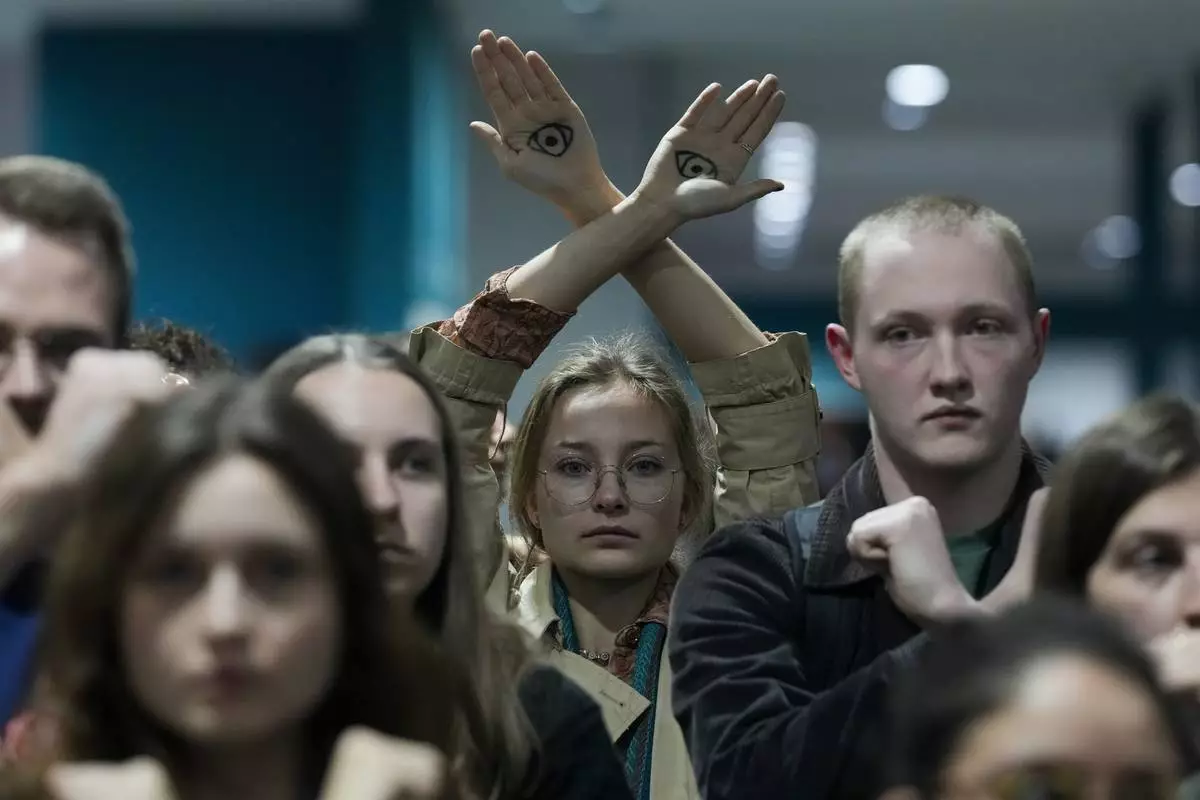
Activists demonstrate in silence protesting a draft of a proposed deal for curbing climate change at the COP29 U.N. Climate Summit, Friday, Nov. 22, 2024, in Baku, Azerbaijan. (AP Photo/Rafiq Maqbool)



